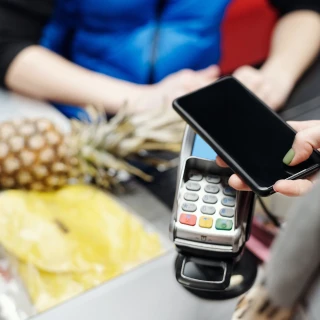
7 Ways to Future-Proof Your Retail Business
- retail
- data
- chatbots
- intelligent apps
Improve your retail sales with these robust business tactics. Learn how your marketing automation and other actions can help you build a resilient business.

Improve your retail sales with these robust business tactics. Learn how your marketing automation and other actions can help you build a resilient business.
If the COVID-19 pandemic has taught us anything, it is that resilience is key to the long-term survival of a business. In the competitive world of retail, tough times are bound to crop up from time to time – even big brands are not immune to such circumstances. However, being nimble and having a robust strategy coupled with a growth mindset can go a long way in helping even the smallest businesses weather major storms. From competitor analysis to leveraging the prowess of data, here are some ways in which you can future-proof your retail business.
Issues and trends which are happening on a wider scale can have an impact on your retail business, even if it does not directly influence your daily activities. Events such as supply chain disruptions and shortages in raw materials can mean that your inventory may run low. Therefore, knowing what is happening in and around your industry allows you to plan ahead and adapt accordingly.
In the same vein as looking forward, looking back at what has happened in the past can also provide useful learning lessons to propel your business forward. For example, knowing that the global pandemic can lead to widespread lockdowns and lesser outdoor movements, companies can consider going on e-commerce platforms to widen their audience reach.
No matter how well prepared a retail company may be, crises will arise every now and then. These problems often appear without warning, and the biggest impact is usually the bottom line. Always stay prepared for times when revenue may dip and set aside an emergency fund to tide through challenges. Many times, this financial reinforcement can soften the impact you may face.
Many companies get too comfortable with a specific marketing strategy that they fail to innovate. Even if your “buy-one-free-one” promotion has worked wonders for years, it is always wise to think of something new to engage your retail customers. Long-term strong marketing success often leads to complacency – people stop monitoring the quality of inbound leads and other metrics. Visibility is key as well, so make use of automation and analytics tools to increase your marketing efficiency while maintaining transparency across all channels.
The retail sector is highly competitive and a very fast-paced one. Every year, new competitors and products pour into the market, which makes it hard for you to stand out. Identify your closest competitors pose as a customer to conduct your own stress test. What you find can be extremely valuable to your own retail business, so pose as a customer and find a low-key way to learn how they overcome challenges. If they do well, you can very well integrate their processes with your own. If they do not, you will also be able to learn from their mistakes.
We all know the importance of data in helping us make smart decisions. However, which information is truly important? While you can track as much as you want in the operational side of things, you should spend some time and effort making sense of the numbers. As much as possible, use a data table or dashboard to visualise what you need to know, and compare it across different months or periods. Harness technologies that offer you useful data and analytics to help you scale your retail business. By doing so, you will be able to identify problems early and develop solutions based on them.